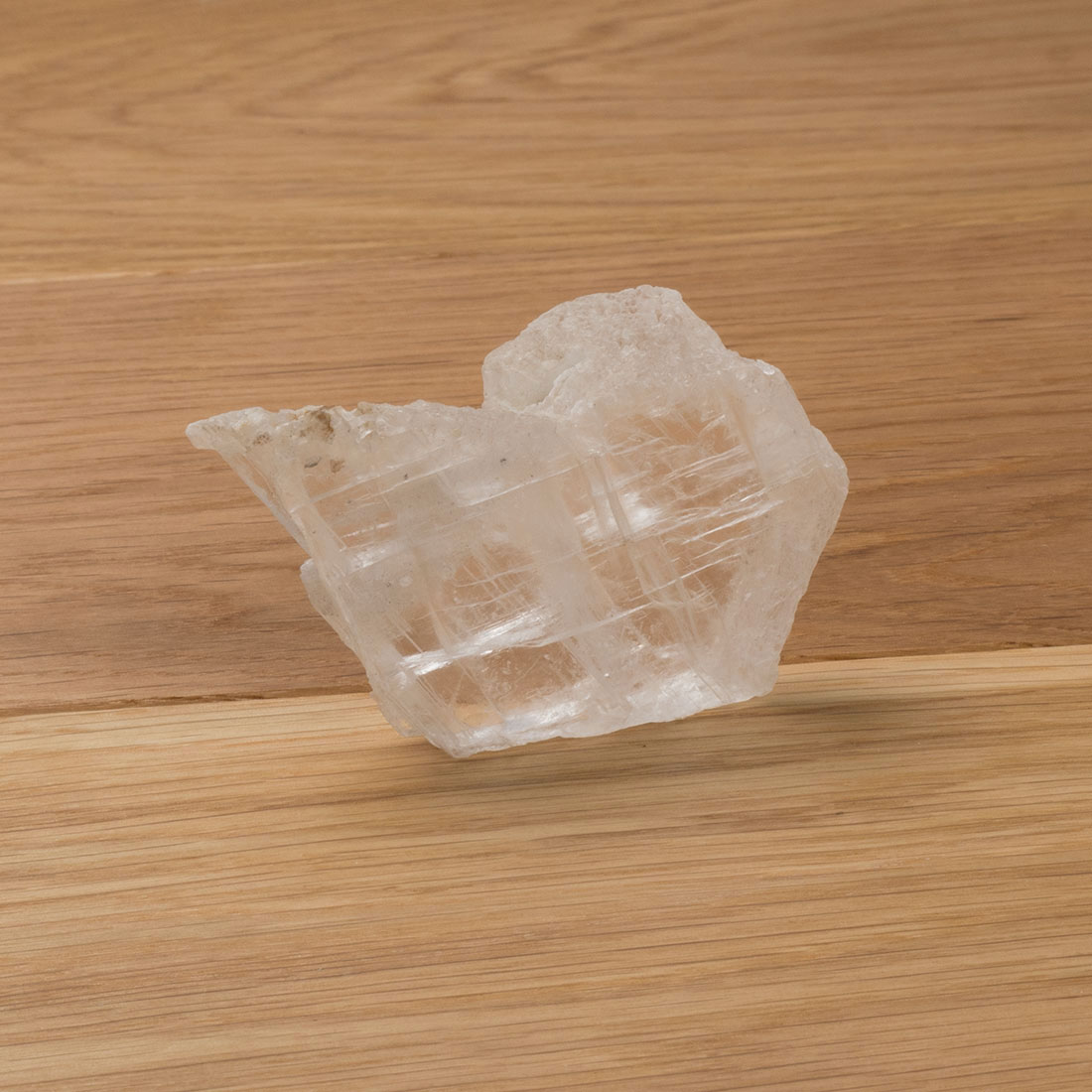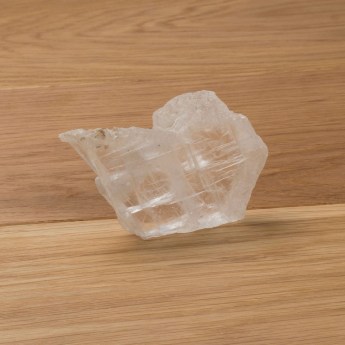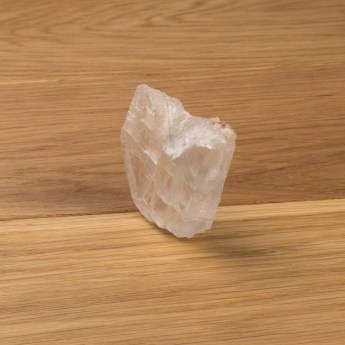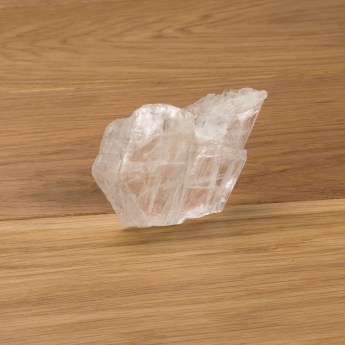Rough Selenite Mineral
Selenite is a variety of gypsum with a distinctive crystalline structure.
Gypsum is a soft mineral made up of calcium sulphate dihydrate. Dihydrate means two molecules of water.
When dissolved in water calcium sulphate causes permanent hardness.
Gypsum is widely used as a fertiliser, for blackboard chalk and is the main constituent of plaster (and plaster of Paris). Selenite is crystallised gypsum.
Satin spar and selenite are not the same. Satin spar features long fibrous crystals that are white and opaque. It usually has a distinctive silky or pearly lustre and is often incorrectly labelled as selenite.
Selenite forms translucent or transparent colourless crystals. This mineral is so soft it can be scratched with a fingernail.
Although it can't be appreciated from our photos this free-standing piece has a vitreous lustre. Minerals with a this kind of lustre reflect light in a similar way to glass.
Some of the crystal faces can be felt on the front but the back is smooth.
Submerging selenite in water for any length of time will cause irreparable damage. To keep this mineral in tip top condition it should not be allowed to come into contact with moisture. It's a good idea to keep a silica gel sachet close to where this piece is being displayed.









